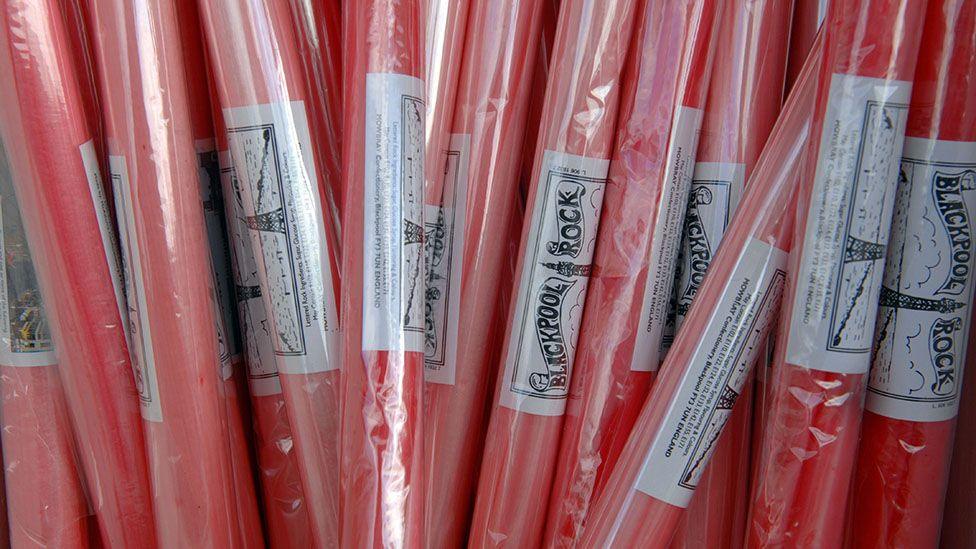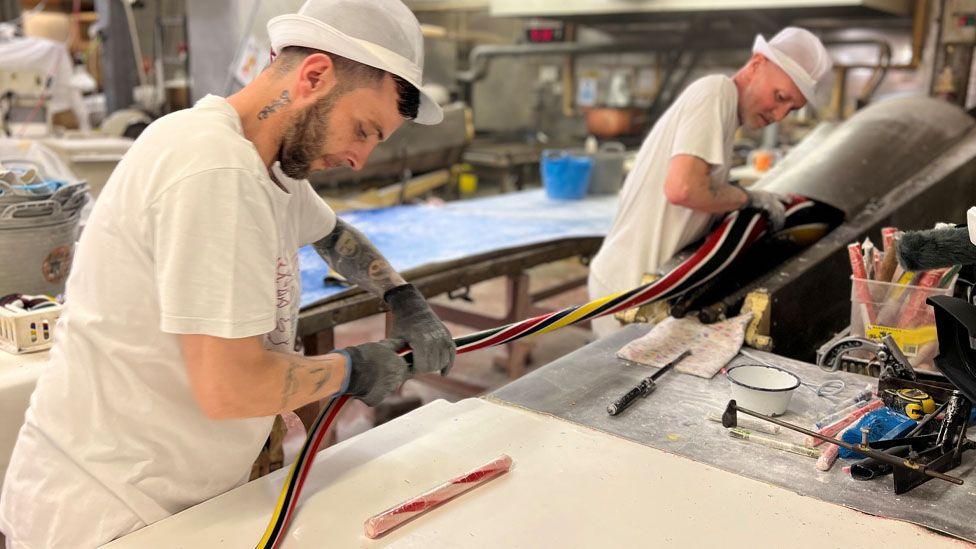Blackpool rock threatened by inferior imports, makers say

Manufacturers said Blackpool rock should get protected status, similar to Stilton cheese
- Published
The "heritage and tradition" of Blackpool rock is under threat from an influx of "inferior" Chinese imports and a shortage of skilled workers, the resort's manufacturers have said.
The seaside town has a tradition of making the sweet treat, but in a letter, 10 manufacturers said they were under "severe threat" from "cheap imitation imports".
They also said only nine factories remained in production and only 30 people in the UK had the skills to "letter" sticks of rock, "almost all of them in Blackpool".
They added that Blackpool rock should be given protected status, similar to that given to Stilton cheese, Cornish clotted cream and Melton Mowbray pork pies.
'Profound impact'
Sticks of Blackpool rock have been a sweet treat for visitors to the seaside resort for more than a century, since appearing in the late Victorian period.
Its origins remain unclear, but most makers believe it evolved from the popular fairground rock of the time, which was a similar shape and size, but lacked the colours and writing of today's offerings.

The makers said there was a need to uphold the "values of fairness, quality and authenticity"
One Blackpool company, Stanton & Novelty Confectioners Ltd, said it made thousands of sticks every day using about two tonnes of sugar a week.
In a letter to local MPs Scott Benton, Paul Maynard, Ben Wallace and Mark Menzies, the resort's manufacturers said the "rise of cheap Chinese imported imitations" was posing a "grave and immediate challenge to our industry".
They said eight factories had closed in recent years and the remaining nine would have "no option" but to follow suit if things did not change.
They said the "quality and integrity" of British confectionery was "unparalleled [and] built upon generations of craftsmanship and expertise", but inferior products were "undercutting domestic producers and eroding consumer confidence in locally-made goods".
They added that the MPs needed to "take a stand" by either supporting the makers' application to the UK geographical indication protected food names scheme or getting behind its British confectionery campaign.
"Preserving the heritage and tradition of British confectionery is not only essential for our economy but also maintaining our cultural identity and pride," they said.
"By championing the cause of local producers, you will not only support businesses like ours but also uphold the values of fairness, quality and authenticity that define British craftsmanship".
Listen to the best of BBC Radio Lancashire on Sounds and follow BBC Lancashire on Facebook, external, X, external and Instagram, external? You can also send story ideas to northwest.newsonline@bbc.co.uk, external